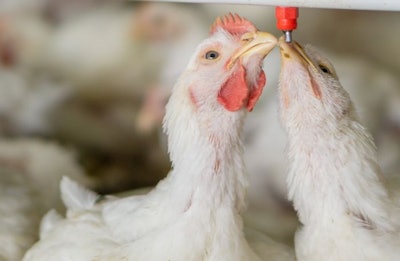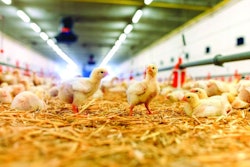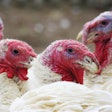
For a company like Tyson Foods, which harvests about 43 million broilers every week, it would be easy for people affiliated with the company to forget that each of those chickens is an individual.
However, Dallas Wynn, Tyson’s senior manager of animal welfare, says it is important not to forget. While speaking during the Flocking Together to Address Poultry Welfare Challenges symposium on October 12. The symposium was hosted by the University of Arkansas and the Center for Food Animal Well-Being.
Wynn shared some advice he once heard from Candace Croney, director, Purdue University Center for Animal Welfare, was well worth sharing again: Don’t just care for the birds, care about them.
“If you think about it, it’s two different things. Caring for them is making sure they’ve got feed, they’ve got water, they’ve got all that stuff. Caring about them is (thinking) ‘I wonder what kind of experience they’re having.’”
It’s all a part of the responsibility of raising broiler chickens, Wynn said.
“They didn’t just wander in out of the jungle and assemble in these houses. We produced the eggs, we drove the fertility numbers, we hatched them, we put them in these houses. We played a part in that. That makes it extra important that we have a huge, ethical, moral responsibility to take care of those birds,” he said.
Tyson Foods and the Five Domains
One way Tyson Foods is adopting that mindset is from its companywide initiative to embrace the Five Domains of animal welfare. Those are nutrition, physical environment, health, behavioral opportunities and mental state.
And if the first four of those domains are met, it contributes to the fifth, Wynn said.
“This domain is the ultimate measurement of the animal’s welfare status, and it’s dependent upon the other four,” said Wynn. “For me, this is where it really gets into your head and I think this is a huge value of the domains. You start thinking and analyzing. If I’m out in the rain, my environment is pretty bad. Does my mental state get better if you bring me a hot cup of coffee? My environment still sucks, but maybe my mental state gets better.”
“My main goal is to max out that mental (domain) and make them feel as good as they possibly can. … That’s where we want to go as a culture, where folks are really starting thinking about this bird as an individual, what kind of life it has, can it get better and what I can do to make it feel better.”
















